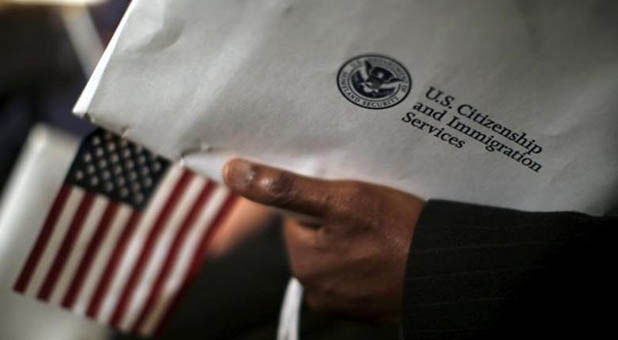When it comes to American Christians whose religious liberty may be infringed upon, the U.S. Constitution, First Amendment and civil rights laws clearly define what constitutes religious persecution.
But what about people in other countries who wish to come into our country because they have been persecuted in their home countries? According to the 10th Circuit Court of Appeals, if someone is able to continue practicing his or her faith in hiding—even if they face punishment or death for doing so—that doesn’t constitute grounds for seeking asylum to the U.S.
The biggest issue, according to a number of Christian court observers, is that federal law doesn’t define “religious persecution” as it applies to the Immigration and Nationality Act. Now, several of those groups are asking the Supreme Court to take up the case of Xue Ting, a Chinese Christian who has sought asylum in America.
Pacific Justice Institute, which has submitted an amicus curiae to the Supreme Court, asking that it take up the case, issued the following statement about Xue’s case:
The appellant, Ting Xue, not only had to practice his faith in secret to avoid discovery and punishment at the hands of Chinese authorities, he was also arrested for attending a church that wasn’t state-approved.
Xue was then confined in unsanitary conditions, beaten by interrogators and fined more than half of his annual wages. After his release, Xue narrowly avoided being sent to a labor camp when Chinese authorities re-arrested members of his church, which continued to operate despite a previous raid.
Though the 10th Circuit did not dispute the facts of Xue’s case, the court still ruled that religious persecution does not necessarily exist where an immigrant has had to practice his or her faith in hiding to avoid harassment or punishment by his native country’s authorities.
Federal circuit courts are split on the issue of what constitutes persecution—which, surprisingly, has no statutory definition under the Immigration and Nationality Act (“INA”), the federal law governing immigration in the United States. PJI is essentially asking the Supreme Court to resolve that split, at least in part.
“The Founding Fathers understood that persecution exists where a government has created a climate of fear for people of certain faiths or belief systems,” said PJI president Brad Dacus. “The United States’ history as a refuge for those fleeing religious persecution predates its existence as a nation, and PJI is dedicated to making sure it stays that way.”
America’s heritage as a haven for the religiously persecuted dates back to 1620, when the Pilgrims who faced persecution at the hands of the Church of England fled across the Atlantic Ocean to found the colony of Massachusetts. Congress stayed true to that heritage by enacting the Refugee Act of 1980, which incorporated religious asylum provisions into the INA.
PJI filed the amicus curiae brief in Xue because the non-profit law firm represents immigrants who have come to the United States seeking religious asylum. PJI has had some success on behalf of immigrants it has represented: In February, PJI convinced the U.S. Citizenship & Immigration Service to grant asylum to a missionary from the Middle East who had experienced torture and discrimination for his commitment to his Christian faith.
“Immigrants from a variety of faiths have risked life and limb to come to the United States to practice their religion openly and freely,” Dacus said. “It should be pretty clear that persecution exists where they can’t do that. Hopefully, the Supreme Court will recognize that, too.” {eoa}







































